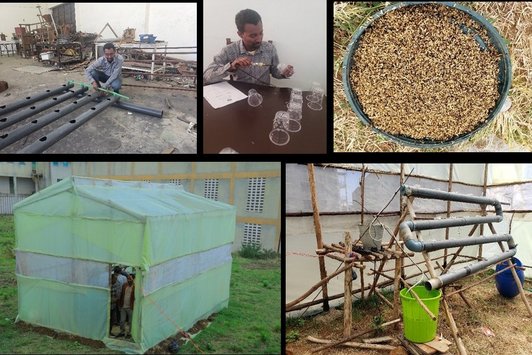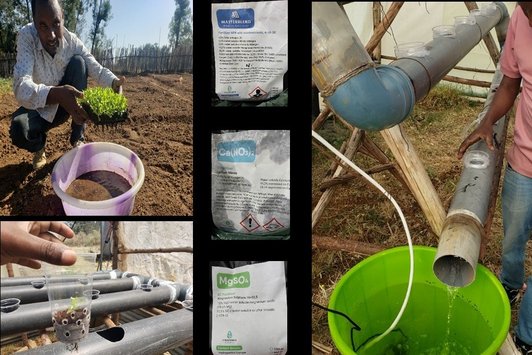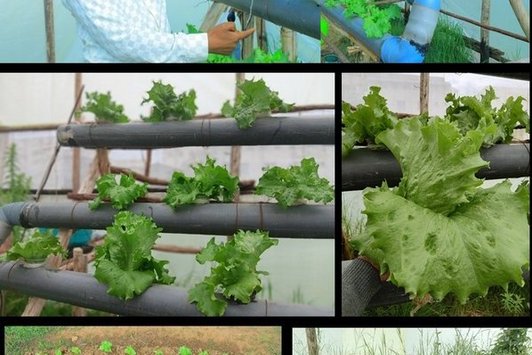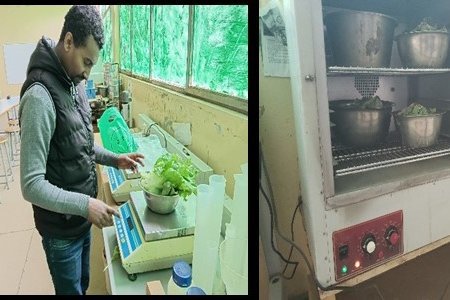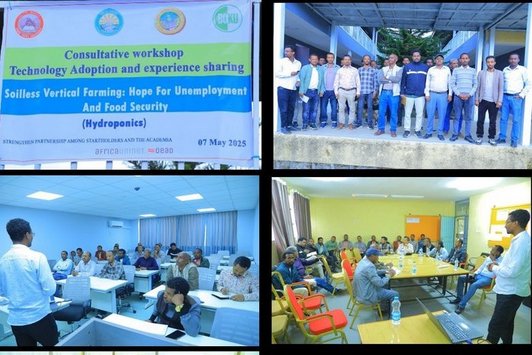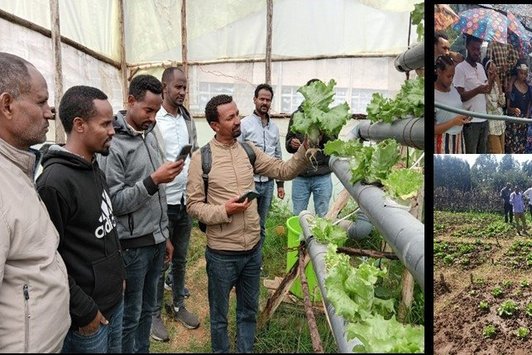Project completed: P111_Ethiopia
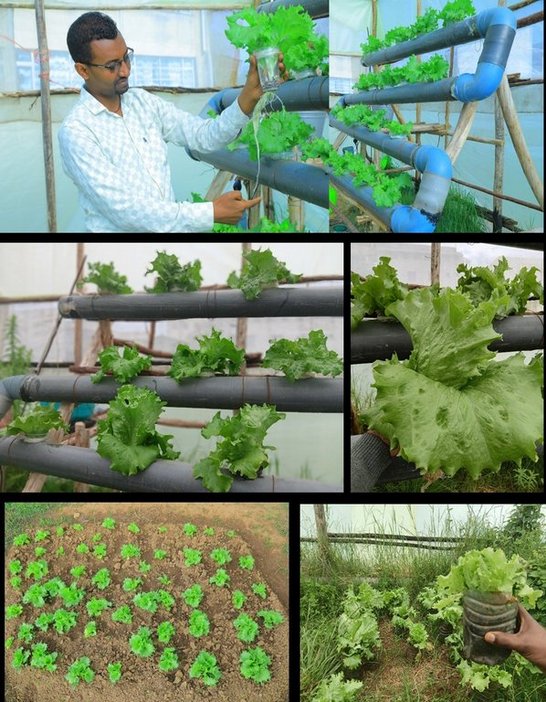
Growing crops without soil-hydroponics: Technology adoption and evaluation of nutritional quality in South Gondar Zone, Ethiopia
Cooperating countries: Ethiopia and Austria
Coordinating institution: Debre Tabor University, Meseret Belachew, meseret.belachew21@gmail.com
Partner institutions: University of Natural Resources and Life Sciences, Vienna, Bahir Dar University, Debre Markos University
Project duration: 1 July 2023 - 30 June 2025
Budget: EUR 40.000
Abstract:
The world population is increasing in alarming rate; and food and nutritional requirement of people are also increasing. Land is limited and the demand of food is rising; it leads to search technology for sustaining life. Taking this issue into account an engineering problem arises: how to grow food without soil in a different environment with limited land and water-scarce areas? Hydroponics can be a viable option to grow fruits and vegetables, regardless of climate, land and soil availability. Conventional crop growing in soil becomes difficult as it requires large space, lots of labor, and a large volume of water. In Ethiopia, there is limited research conducted on growing vegetables without soil and nutritional quality of hydroponic technology. Therefore, the main objective of this research project is to adopt hydroponic technology and evaluating the nutritional quality of crops in the highlands of Ethiopia. Hence, this project proposal is developed to adopt the new technology of growing vegetables without soil in Ethiopia. The project will be carried out on selected vegetables in Ethiopia such as tomato, cabbage, and lettuce. The technology is expected to be adopted and used to alleviate food insecurity since the technology is a climate-smart agriculture. The nutritional quality of grown vegetables and the result will be disseminated to other African countries to contribute to the SDGs. The result will be disseminated to other African countries to contribute to the SDGs. Project implementation will require 40,000 Euros for two years.
Summary:
The population is increasing at an alarming rate, and the demand for food is rising. Rain-fed agriculture with limited land resources is the main source of the Ethiopian economy, which accounts for about 65% of the GDP. Despite the country has enormous potential arable land, the resource remained unutilized due to many reasons such as limited access to finance, technology, extension services, inefficient market systems, and underdeveloped and informed research results.
This research project, therefore, would like to address one of the challenge through adopting a new technology of growing vegetables without soil in the highlands of Ethiopia in comparison with soil-based farming. In the traditional farming system, plants completely depend on nutrients in the soils to grow. In contrast, a hydroponic farming provides all these essential nutrients without soil. Setting up a hydroponic system requires initial investments and could not be affordable for the poor smallholder farmer.
Our operation started with collecting input materials, setting up a hydroponic farming system with local resources, and field layouts. Though there are different hydroponic systems used to produce high-value crops, lettuce, we used the Nutrient Film Technique (NFT) and soil based system. Unlike other agronomic research findings, there are few published research reports on hydroponics; however, the technology is widely practiced in the developed world.
The hydroponic and soil based experiment was conducted at greenhouse and open field level, respectively. The open field experiment followed the traditional farming practice. For the hydroponic, the blended nutrient concentration was applied. The crop parameter data were collected on six weeks long. The change in nutrient ratio for the hydroponic system was tested.
The experiment revealed that the hydroponic system crop was matured within 37 days while the soil based was too late. In addition, the crop was not potentially grow in open fields in the rainy season, which hinder the production frequency of the crop. Hence, it is hard to find lettuce in market places. Whereas, the hydroponic could produce about ten times a year using greenhouses.
It was found that, as far as the pH and EC of the solution is maintained within the recommended range, the difference in the nutrient ratio does not bring any significant change on the yield and nutritional quality of the crop.
Furthermore, one of the major output of the project was dissemination of the project results with concerned stakeholders and the academia. Since, the technology is new and different; invited visitors were learned the effort and initiated on the realization of the technology. Especially, invitees from urban agriculture and labor office, the experiment create a new initiative to support their vertical farming urban agriculture and an opportunity to create job for unemployed youths and women.
To conclude, the project was recognized by Debre Tabor University and considered as a tangible research and technology transfer achievement. Hence, the result shared as one of the major completed activities in 2025 on the university website. This joint outcome extends to a larger audience and raises awareness most effectively.
